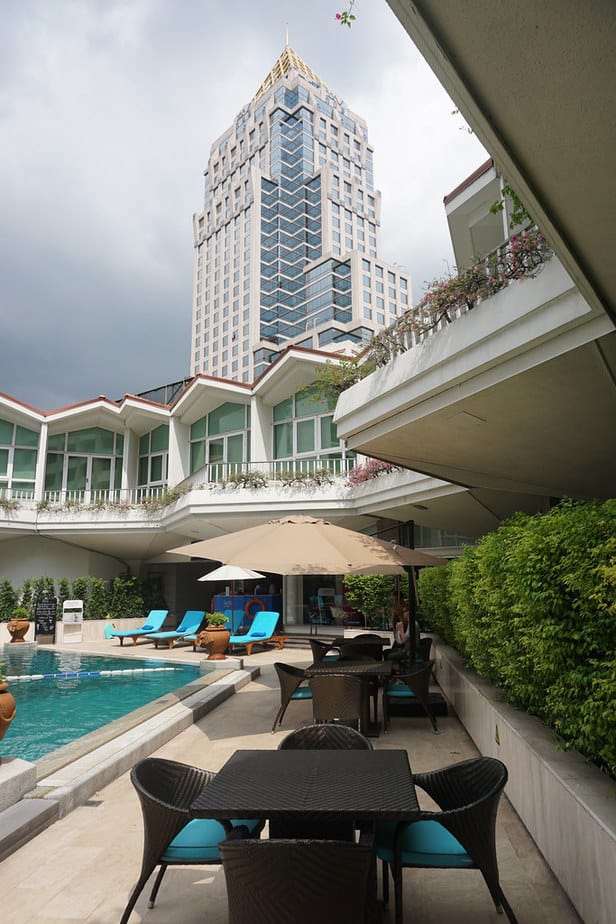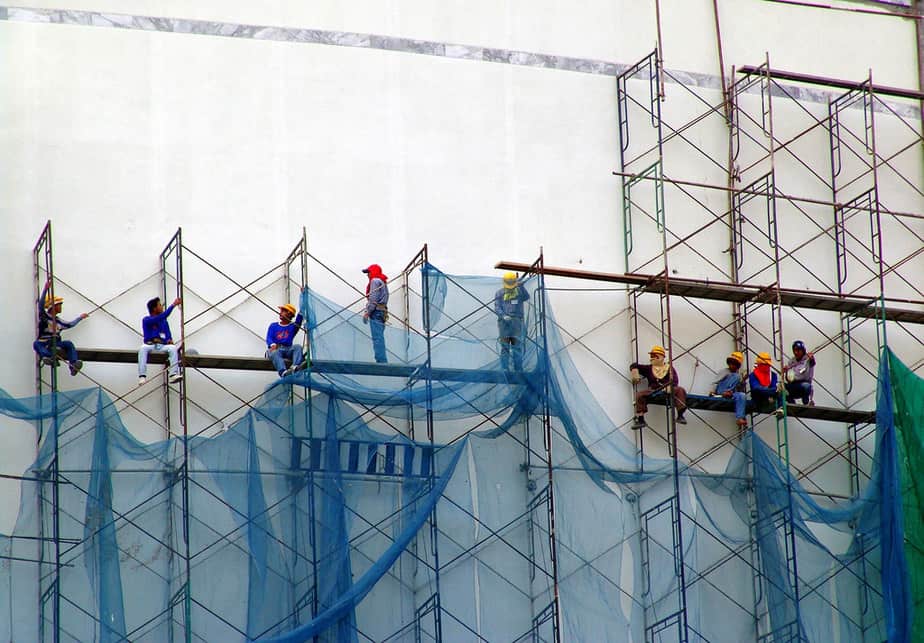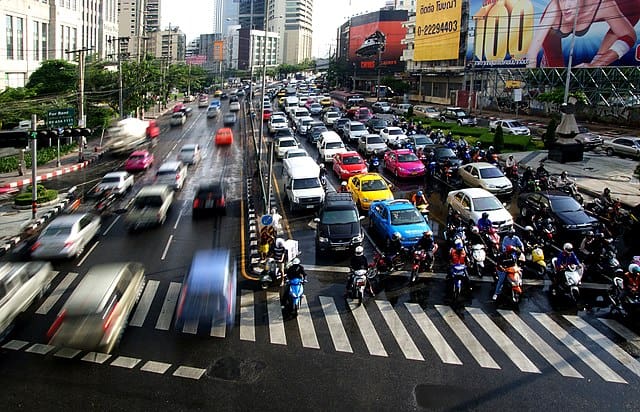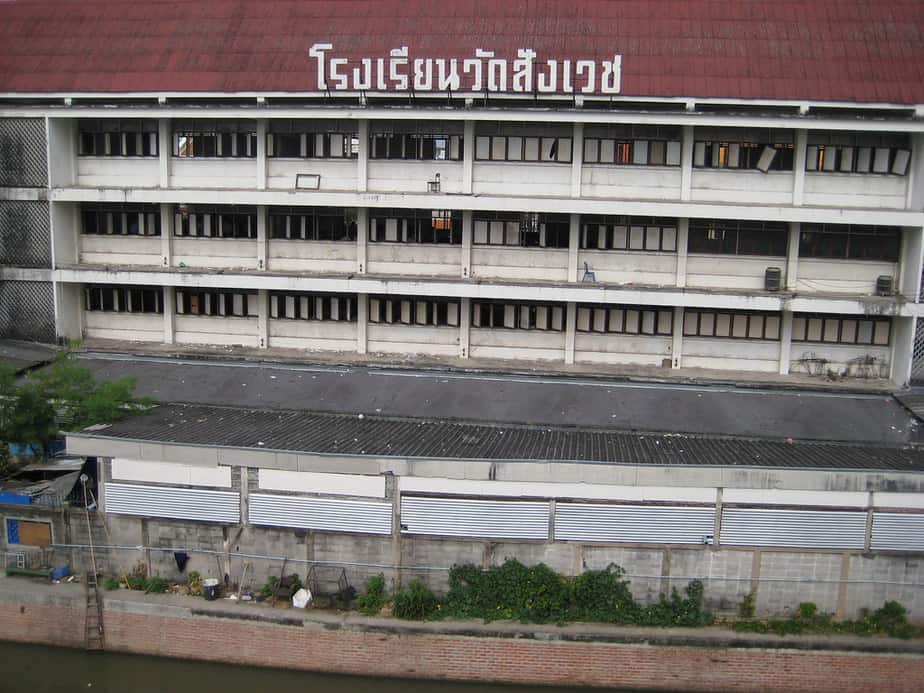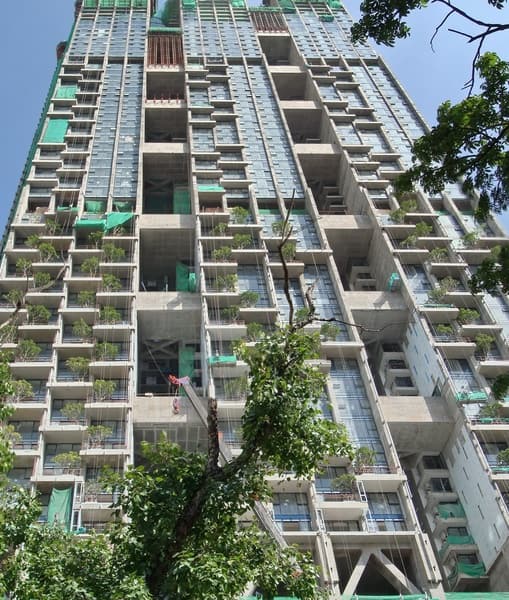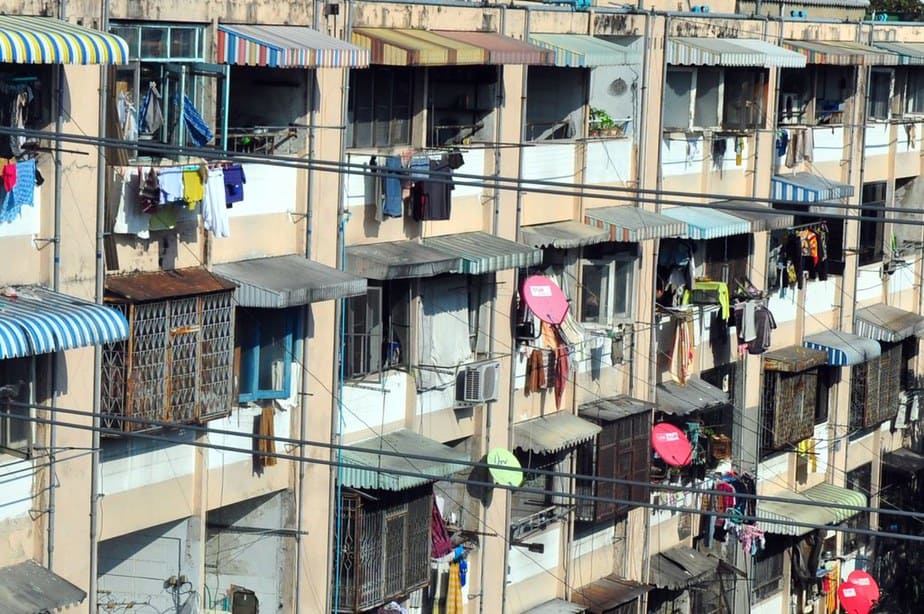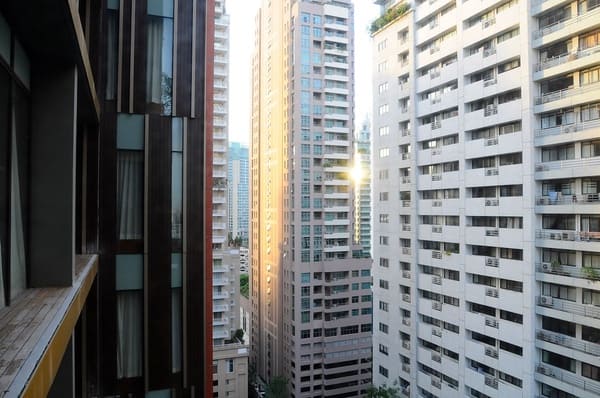The Top Things to Consider before Renting Accommodation in Bangkok
Visiting other countries has traditionally meant staying in hotels for many people.
And there is an interesting and extensive range of hotels available in the Thai capital that will make your stay all the more worthwhile. But realistically hotels are usually good for short periods of between a few days and a few weeks.
So what other options are there in Bangkok for those who may be staying a little longer?
The last decade or so has seen many developments in the ways that travellers view and book their accommodation options. What with online booking, a whole host of apps, and the likes of Airbnb etc., finding a much wider range of accommodation in countries like Bangkok has never been easier.
And it’s also true that many people are now looking into alternative ways of living which may include remote working, while others are simply selling up and travelling, looking to find out what other delights life holds for them away from the norm.
For many of them this may mean anything from a month to a year in one place, with some of them looking to find work locally to fund the trip if it is at all possible.
(Note: work for foreigners is notoriously limited in Bangkok unless they are being sent by a company from abroad, or are coming to work as teachers – and this market has been pretty much flooded in recent years meaning higher demands, lower rates and poorer conditions. Just saying.)
Many more people in recent years have stared take full advantage of the ease of booking and the variety of accommodation on offer by arranging their own condos, apartments, and rooms through agents and apps like Airbnb rather than staying in a standard hotel, a B&B or a hostel.
An apartment or condo is an ideal option for travellers who plan on staying for extended periods in Bangkok, especially if the timescale involved is anything between a month and a year. Maybe you are a digital nomad looking to spend a few months in warmer weather, or you actually intend on working in the city.
Many property owners in Bangkok are well aware of this trend, and have found ways to make private rooms, apartments, and condominiums accessible to would-be renters from around the globe.
And it is true that this is often a much cheaper option than staying in a hotel. It also allows much more freedom in terms of culinary options, similar to a self-catering holiday.
Either way, you’ll still want to avoid many of the possible annoyances and disturbances that could easily come your way when renting property in the notoriously noisy and ever-changing Thai capital.
It is not all that difficult to find a place when you arrive in the city itself, but it pays to have the heads up on what to expect by shopping around and asking the necessary questions before your arrival – if not pre-booking it.
It’s worth knowing beforehand that the level of English in Bangkok is still not that high, and is still non-existent in all but the city centre residences in many cases. So having as much as you can pre-organised before arrival in the city will certainly save on a few potential headaches.
Yet if you are planning on renting out any accommodation in Bangkok for any period of time, there are a few things to be aware of beforehand. When you want to escape the drudgery and normality of your usual life, you can easily develop the ‘rose-coloured spectacle syndrome’.
It’s easy to be impressed by any pictures of the place that you plan on staying in, which make it look clean, modern and well-maintained. Or maybe even the views from the window in the pictures make the place look exotic and inviting.
You may even think that the prices are really cheap compared to anything in your own or other countries that you have visited.But it always pays to have a bit of inside knowledge in order to avoid some of the potential pitfalls.
So with that in mind, let’s take a deeper look into the top 5 things to consider when renting accommodation in Bangkok.
Location and Noise Pollution
The first thing to consider is what kind of location you really want to be staying in. It is worth knowing that in Bangkok there is a whole host of noise pollution that could easily disturb your work, your peace of mind, and even your sleep.
Traffic
Needless to say, if you are in a city centre location, there is much more of a likelihood of constant background traffic noise by way beeping horns, and a fair few motorbikes, tuk-tuks, and buses that seemingly have no exhaust silencer of any description. This is much more likely on any type of main road.
Music
Then there is the music. In Thailand music is played LOUD.
Whether it comes by way of car stereos or local bars and other entertainment venues, the thin walls of any accommodation you choose to stay in will do little to dampen it.
There could even be a local business like a garage or such like that will undoubtedly have music blaring out as and when it suits.
Schools
Or even worse, you could be in close proximity to a school or university. These places have loud speakers that play their own ‘anthems’ (as well as the Thai anthem at 8 am every morning).
There will also be endless announcements going on throughout the day, not to mention bells and buzzers. And there tend to be lots of ‘events’ that typically involve music, pomp, and endless commentary, which can begin to grate if you are trying to work or relax.
Construction
It has been said that Bangkok is one big construction site — a never-ending ‘work-in-progress’, so to speak. And this is undoubtedly one of the biggest banes for many residents.
So it pays to look out for not just existing construction in your immediate vicinity, but also any impending construction. You may think that the patch of lush greenery right next to the place that you are going to rent adds touches of a relaxed, suburban feel.
What you might not be aware of though is the 99.9% chance that sometime in the very near future that very same ‘touch of nature’ will be uprooted and built upon. And this means only one thing – the endless din and dust of construction, for at least the next couple of years, right outside your window.
The racket often starts at the (highly illegal) hour of 6 am and can continue as late as 9 or 10 pm, depending on the urgency of the project at hand.
So take a good look around the environment that the accommodation is located in before making any decisions about renting for any length of time, if at all possible.
The Actual Room or Apartment
So if everything seems in order around the immediate vicinity, it’s now time to start weighing things up from the inside.
What floor do you want to be on?
Just in case you did miss any potential noise hazards in the surrounding environment (did we mention the ‘soi dogs’ that liven up at night?), then it might pay to be a bit higher up if the building permits and you are OK with heights.
Whatever floor you decide on, take a quick look around at the state of some of the other rooms (you can tell by doors, walls etc.).
Ask if any of them are empty – don’t discount the possibility of indoor construction and renovations – and listen out for any potentially noisy neighbours. (Tell-tale signs are doors open, loud music, young children, smoking, dogs, etc. The Thais are notorious for ignoring any ‘house rules’).
It might sound odd, but you might also consider which direction the sun rises from. Although most people would be thrilled at having the sun brighten up their apartments, in Bangkok it can be uncomfortable.
In the morning and evening you might appreciate it scenery-wise, but during the daytime the sun will turn your room into an absolute sauna. This could mean through-the-roof air conditioning bills if you feel that is the way to combat the baking heat.
The walls in the buildings in Thailand are quite thin as well, which means they just heat up as the day goes on. This will happen anyway due to the temperature and humidity both inside and out, but with the sun directed on to your walls the effect will be doubled.
The Rental Agreement
What agreement? Exactly.
If you are paying to stay anywhere for more than a few weeks, and especially if any kind of down payment or deposit is required, then you should get something in writing.
Although many of the younger, more modern property owners who rent to foreigners are a bit more switched-on when it comes to things like agreements and inventories, you may still commonly encounter renters who would rather do business on a handshake. Or a wai.
The only potential downside to this is all the ‘extras’ likely to materialise when you move out that were not covered at the beginning. These could be things like natural wear & tear on furniture, paintwork, and floors which the renter deems will need some work. It happens.
The first thing to establish is who exactly you are renting from. Is your agreement with the condominium or apartment operator or with a private owner? Either way, you need to know — and as well as having all the relevant (24-hour) contact details of the responsible party, there are a couple of other things to consider.
Like who is responsible for anything broken or in need of repair, for instance light bulbs, shower heaters, dripping taps, air conditioning, etc. Many Thai landlords hold the position that none of the above are their concern, and that instead they should be dealt with or replaced by the tenant.
Another thing is the water and electric bills. Many condos charge their own rates for these, rather than the standard government rates which are much lower.
If you are renting from the condominium operators you’ll be paying the higher rates, but some private owners have already negotiated the lower rates as they have to pay an annual management fee to the property.
Local Amenities and Transportation
We’ve established that you might not want to be in an area that is too central or built-up, yet you will still need to be able to get around from where you are.
A lot of properties in Bangkok are what is known as ‘in soi’. This basically means that they are located someway down a small road or backstreet not serviced by any kind of public transportation.
This is one of the reasons why you see groups of motorbike taxis at the end of these streets, and usually there will be a group of them outside a residence if it is large enough to warrant their presence.
So ideally you either have your own transportation (not recommended if you read any of our previous posts on driving or riding a motorcycle in Bangkok). Your other options are finding a place within walking distance of a BTS or MRT station unless you are OK using the motorbike guys (not recommended).
The absolute best option for getting around in Bangkok is using the Grab app (see our previous post on this) and having a car or taxi pick you up from your residence — but obviously this is not the cheapest option. You can even get your groceries delivered using this app if you are not close to a local market or a supermarket.
Being in close proximity to a mall might be appealing for the purposes of general shopping and people watching – not to mention restaurants and cinemas. But a market selling fresh produce is the absolute best bet for fruit and veg if you are planning on doing your own grocery shopping, and there is always a Tesco Lotus not too far away.
So if you are planning an extended trip to Bangkok any time in the near future, hopefully all of that gives you some insights into what to expect when renting accommodation!
Planning a trip to Paris ? Get ready !
These are Amazon’s best-selling travel products that you may need for coming to Paris.
Bookstore
- The best travel book : Rick Steves – Paris 2023 – Learn more here
- Fodor’s Paris 2024 – Learn more here
Travel Gear
- Venture Pal Lightweight Backpack – Learn more here
- Samsonite Winfield 2 28″ Luggage – Learn more here
- Swig Savvy’s Stainless Steel Insulated Water Bottle – Learn more here
Check Amazon’s best-seller list for the most popular travel accessories. We sometimes read this list just to find out what new travel products people are buying.





